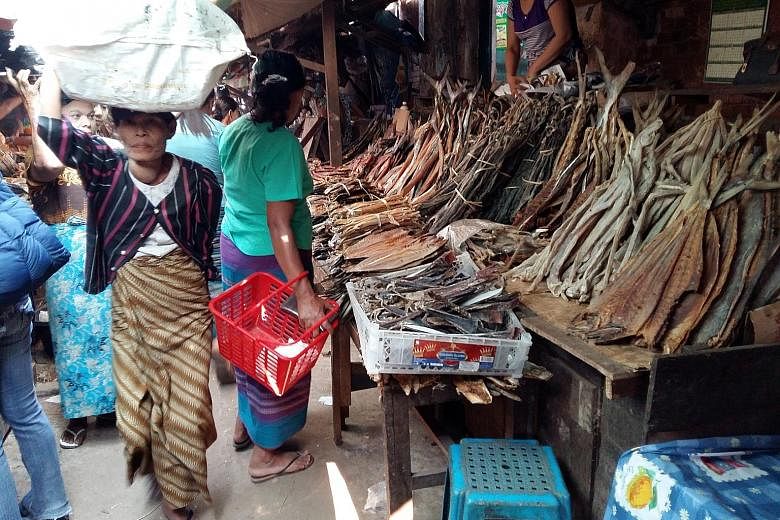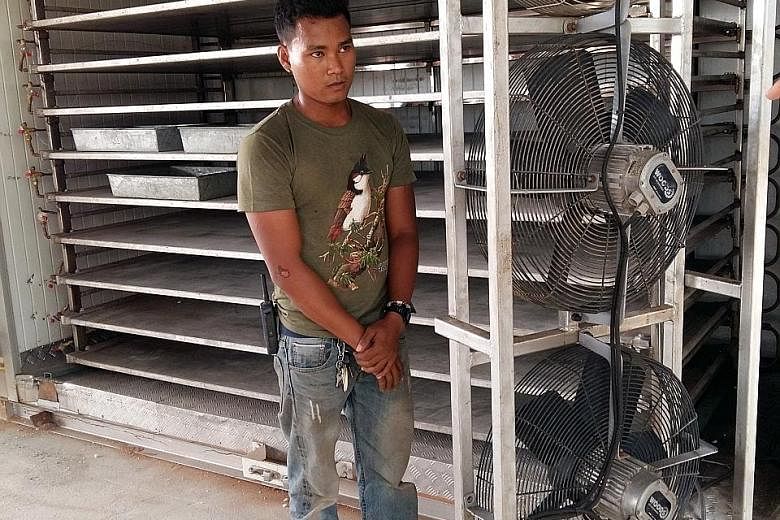BANGKOK • Saw Hdaik Oo, from Dawei in Myanmar, left home for Thailand when he was 15, in search of a job. He was fortunate to find one at a seafood-processing factory in Ranong, southern Thailand. And then even luckier to be promoted to oversee the refrigeration at a plant in Mahachai, which has one of the country's largest seafood markets.
Turning 30, he has returned to his homeland, still working for his Thai boss, who is expanding the business to Dawei. His responsibilities are to source seafood from the nearby city of Myeik in Myanmar and to oversee operations at the soon-to-be built factory in Dawei.
He was glad to return home along with his wife, who worked at the same factory in Thailand.
Asked if he had ever considered returning before his boss decided to branch out, he said: "Never. There are few job opportunities here."
Located 374km south of Yangon, Dawei was, until recently, cut off from the commercial capital.
Now, with Japanese investment flooding into the coastal Tanintharyi region, Italian-Thai Development is providing a link where only disconnected logging tracks once existed.
A 138km, two-lane highway is being built as part of the Dawei Special Economic Zone, establishing a permanent road link with Thailand.
For now, the unpaved road between Thailand's Kanchanaburi and Dawei is dry and dusty.
Locals don helmets with improvised face masks to ride motorcycles, covering their mouths to protect against dust clouds kicked up by approaching vehicles.
Cars are a rarity.
The Dawei project is also improving facilities in the region.
Mr Somjetn Tinnapong, managing director of Myanmar Industrial Estate, told Thai journalists in Dawei that he takes a 6.30am flight from Bangkok to Yangon, then a 50-minute flight to Dawei. From there, it takes him about an hour by road to the site. Through years of making this trip he has witnessed development gradually reaching the city. The small airport installed toilets for passengers only last year. Back then, a lack of electrical lights meant it could not accommodate night flights. All that has changed.
It is obvious why Roland Berger, the consultancy firm advising Myanmar's government on Dawei development, was a strong advocate of the special economic zone.
In August, the consultancy said the zone would create hundreds of thousands of jobs and contribute up to 5 per cent of Myanmar's gross domestic product by 2045. The initial phase involves building a small port, power plants, the two-lane road to Thailand, an LNG terminal, a township, a telecom landline and an industrial estate.
While the initial phase will target labour-intensive industries such as textiles and food processing, the long-term master plan should attract other industries to Dawei SEZ - including automotive, steel, electronics and electric goods, rubber, metals, chemicals, refinery, fertilisers, plastics and pharmaceuticals.
The jobs and prosperity created will be a boon to the people of Dawei and other cities of Tanintharyi.
Despite its size, the migrant- drained region is home to only 1.41 million people.
Emigrants like Saw Hdaik Oo can now start looking for jobs closer to home. But businesses in Thailand need to watch out. The migrant exodus will happen sooner rather than later.
THE NATION
•The Straits Times is a founding member of the Asia News Network, an alliance of 22 newspapers.


